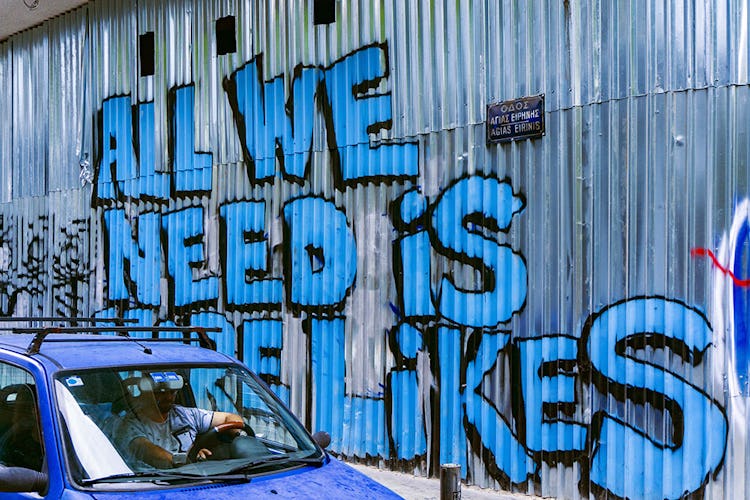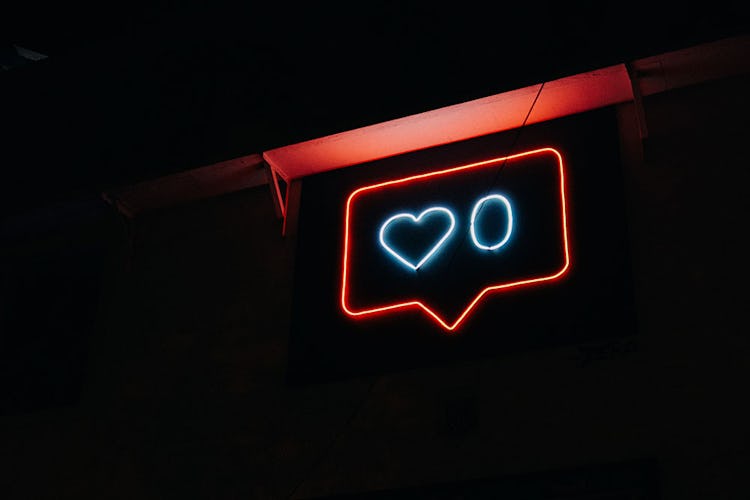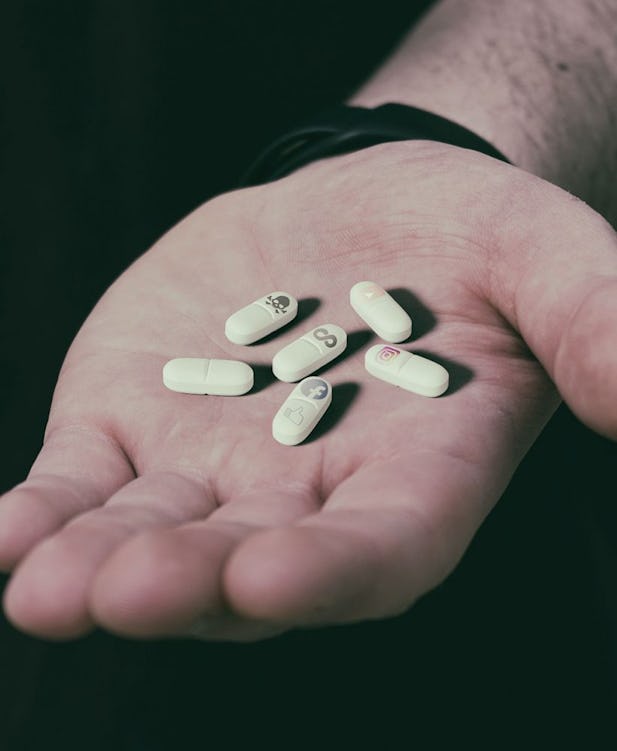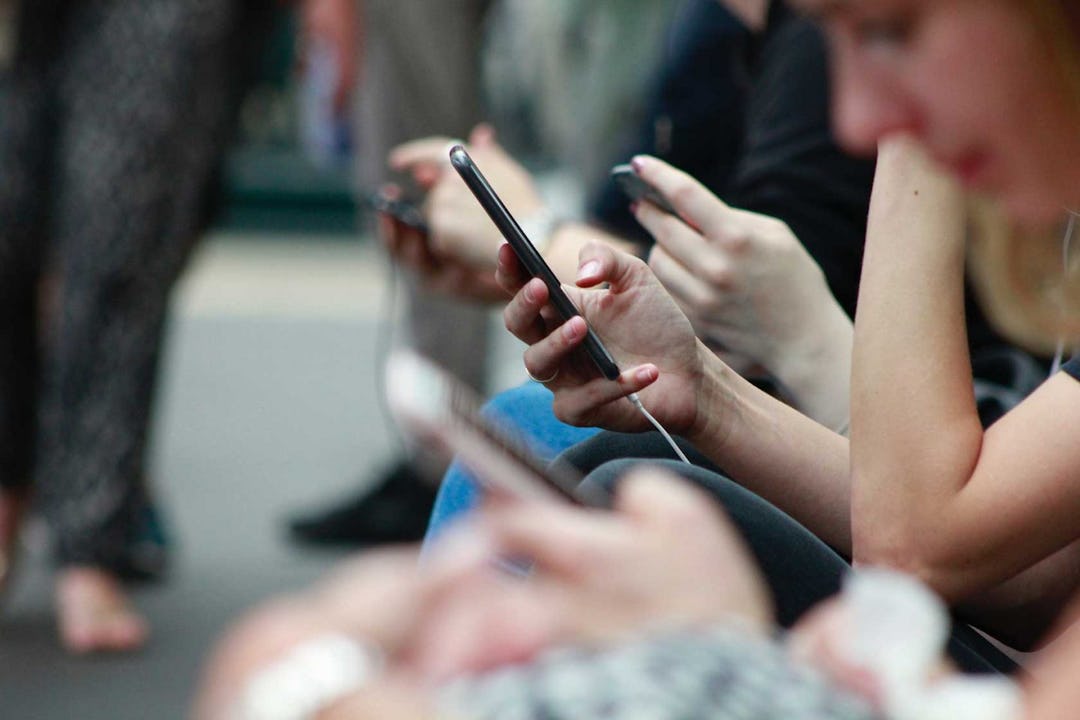When social media debuted at the turn of the century, it promised to help us maintain contact with friends, share our ideas and opinions with the world, and meet new people with similar interests. In short, it was supposed to bring us all closer together. But you don’t have to spend much time on social networking sites and apps today to see that the planet hasn’t joined hands to sing Kumbaya.
While Facebook, Twitter, Instagram, and other platforms have revolutionized the way we access information and interact with the world, they’ve come with equally powerful consequences. They warp our sense of reality, distract us from tasks, lead us to compare our lives with others, and have us checking our cell phones like it’s an addiction (and research shows that it is). Social media has given us a window into how one another really live, but it’s also exposed our ugliest sides—the ones you can’t filter on an app, of course.
This Christmas, Onnit is taking a sabbatical from social media. We’re going dark for a week to encourage everyone to take notice of his/her own social media use—and, perhaps, overuse. As with any other type of fast, getting away from apps and interfaces for a little while can have a detoxifying effect, and might even help you to reconnect with people the old-fashioned way—in person, or via verbal conversation.
If you need a nudge to put your phone down, keep reading. There’s mounting science to show that too much social media can contribute to serious mental and physical health problems, ranging from feeling lazy to outright suicidal.
Are You Addicted to Social Media?

One of the first things you notice when you download a social media app is that it starts using you rather than the other way around. You plan to finish a work project, take the dog out, or go to the gym, but you just need to see how many likes you got, if so-and-so responded to your comment, or what President Trump Tweeted today first¦ Next thing you know, an hour has gone by, and you have nothing to show for it.
According to the Global Web Index, an Internet market research company, as of 2016, the average Internet user spends more than two hours per day on social media platforms. To gain some perspective, consider that, as of a 2018 US Department of Health and Human Services report, fewer than 23% of American adults get 150 minutes of moderate and 75 minutes of vigorous exercise PER WEEK—the minimum amount of activity the government recommends.
Teenagers seem to be particularly susceptible to displacing healthy habits with social media use. In a 2019 study published in The Lancet Child & Adolescent Health, researchers interviewed 10,000 British kids between ages 13 and 16. They concluded that social media use may harm adolescent girls’ mental health by not only exposing them to cyberbullying but also reducing the amount of sleep and exercise they get. The more they engaged with social platforms, the less time they allowed for rest and sports play, and that heightened psychological distress.
When you look at how social media affects the brain, it’s easy to understand its seductive power. “The ego wants to be recognized,” says Dan Engle, MD, a functional medicine doctor and psychiatrist (drdanengle.com). “Social media is all about satisfying ego desires of self-importance—being validated, recognized, and seen. So any time the ego senses those things, it registers it as a reward. Our self-worth grows in connection to how much people are witnessing and acknowledging us—giving us feedback and ’likes.’ This stimulates addictive neurochemistry that creates a behavioral pattern that becomes harder to step away from over time.” This is how addictions are born.
As Facebook is one of the oldest social media platforms, it’s been the subject of more research than other networking sites. In 2014, Austrian researchers conducted three studies, finding that subjects who used Facebook for 20 minutes reported a worse mood than those who just browsed the web. The mood change, scientists suggest, may have resulted from the people feeling that social media use was a waste of time. The research hinted that people continue to use social media because they expect that it will make them feel better, when science shows that it ultimately makes them feel worse.
A 2017 trial in the American Journal of Epidemiology featured more than 5,200 subjects, and focused on the association between Facebook activity and real-world social activity with respect to mental and physical health and life satisfaction. Liking other people’s content, clicking on links through Facebook, and updating one’s status were all associated with decreased mental health (reported by the subjects themselves), and the very use of Facebook was found to be negatively associated with well-being. The researchers wrote: “The negative associations of Facebook use were comparable to or greater in magnitude than the positive impact of offline interactions, which suggests a possible tradeoff between offline and online relationships.” That is to say, bad feelings derived from using Facebook may have an even more powerful effect on the mind than good ones you get from friends out in the real world.
Alarmingly, there’s no single personality type that seems to be at the greatest risk of social media addiction. A British review of 43 different studies determined that social media addicts can be extremely introverted (and therefore use social networks to compensate for having few social connections in real life), but also extremely extroverted as well (perhaps because they have so many friends to connect with). Those who are already dependent on alcohol are also highly susceptible. Excessive social media usage, the researchers report, is linked to relationship problems, poor academic performance, and reduced participation in social communities offline.
Scientists haven’t yet agreed on exactly what constitutes “excessive” social media use, but most studies consider multiple daily social network check-ins an indication of some level of dependence (and, sorry, but chances are good you’re in that boat).
“I think, on average, an hour of social media per day is a good maximum,” says Engle. This takes into account how much overall screen time you’re getting from your use of your cell phone and other devices. Interfacing with any kind of blue-light emitting electronics revs up your central nervous system, which Engle says can contribute to problems like anxiety and insomnia, so it’s best to get away from digital screens whenever you can. “Most people probably spend at least another hour on emails and another watching TV, so that’s three or four hours of screen time already.”
Does Social Media Lower Your Self-Esteem?

One of the worst miseries associated with social media is comparative thinking. Constant bombardment with pictures of people that (appear) to be on exotic vacations, in happy relationships, or enjoying life in general never fails to make us question our own level of fulfillment, and usually conclude that it’s lacking. Whether it’s a family member, a work colleague, rival, romantic crush, or a celebrity, following him/her on Instagram long enough is sure to make you feel that you don’t measure up in some department, and that can sow the seeds of low self-confidence, and ultimately depression.
A 2017 study on women between 18 and 25 found that greater Instagram use was associated with greater self-objectification. Frequent viewing of so-called “fitspiration” pics—photos of fit people’s bodies—resulted in a higher concern about body image. Meanwhile, a Penn State study showed that looking at other people’s selfies can lower your own self-esteem and sense of life satisfaction. Interestingly, the study noted that looking at pictures of groups of people on social networking sites may result in higher feelings of satisfaction, but posting selfies or “groupies” wasn’t associated with self-esteem or satisfaction.
Two more studies that included more than 700 students found that feelings of worthlessness and hopelessness were linked to time spent socializing online. Those who had negative interactions on the web reported having the worst feelings.
Is Social Media Causing Depression?

If you’re a teenager reading this, chances are that acne or a recent breakup have already got you feeling low. Don’t let social media drag you down even further. A 2019 study in the Journal of the American Medical Association covered more than 3,800 subjects, and concluded that, due to strong associations, use of social media (and television) may enhance symptoms of depression.
In 2017, a study on young adults in Social Science & Medicine found that social media was associated with increased depressive symptoms, but the results indicated that how they use social media—not how much they use it—may be what does the damage. Furthermore, the findings showed that the more social media platforms an adolescent engages with, the more likely he/she is to exhibit depression and anxiety.
That same year, Computers in Human Behavior published a study revealing that people who use seven or more social media platforms are more than three times as likely to have high levels of general anxiety and depression as those using zero to two platforms.
Does Social Media Contribute to Suicide?
Comparing yourself to others online may make you feel inferior, but having other people on Facebook, etc., outright tell you that you suck could make you want to die—literally. Internet bullying—aka cyberbullying—via social media can be so relentless that it’s been linked to suicide-related behavior.
“It’s easier to ridicule people virtually than it is to do it face to face,” says Engle, “so people can get into demeaning or posturing positions without full appreciation for the ramifications.” For the victims, that ridicule can be that much more humiliating to endure, because the social media platform makes it visible and accessible to the whole world. Remember that the ego craves recognition, so when it gets it in a negative way, and in mass amounts, the blow can be many times more crushing. “The feeling [for the victim] is that, immediately, the world can have a whole new impression of me,” says Engle. “A person’s whole world can turn upside in a millisecond, if he or she uses social media to identify him or herself to the world.”

The American Journal of Public Health reported that social media can amplify feelings of isolation, instability, and hopelessness among those who are already stressed emotionally or psychologically, or live in stressful environments. These feelings can increase the risk for suicide.
Again, young people, the most active social media users, are on the front lines. A survey given to nearly 2,000 middle school children indicated that those who were cyberbullied were almost twice as likely to attempt suicide as those who weren’t. Also, the cyberbullies themselves were one and a half times as likely to report having attempted suicide than those who were not offenders, or were victims of cyberbullying.
If you’re a person who’s already considering suicide, social media may actually facilitate your going through with the act. An Australian study concluded that interactions on chat rooms and discussion forums may foster peer pressure to die by suicide, encourage users to idolize people who have killed themselves, or make it easier for those who have made suicide pacts with each other to see it through. In this case, social media is doing exactly what it promised—helping people come together and support each other—but by reducing their doubts and fears about ending their own lives.
Benefits of Social Media

Despite its flaws and pitfalls, social media, of course, isn’t all bad. Like a knife or a fire, it can be used to help as well as hurt—and it’s not going away any time soon. For as much as social media can do to make us lazier and less happy, there’s also evidence that it can be motivating, and even help treat emotional and psychological problems.
In a 2015 study, when subjects were asked to look at “envy-eliciting” photos on Facebook and Twitter—posts about buying expensive things, traveling, and getting engaged, for example—researchers found the people felt “benign envy.” This is a form of jealousy that is more likely to make a person work harder to get those same things for him/herself.
Researchers from the University of Pennsylvania and University of Miami found that people who are emotionally unstable are more likely to use social media to post about their emotions. This can lead to them receiving support from their social network that helps them feel better after a negative experience. People with emotional problems tend to be apprehensive in live social situations, so turning to social media to vent is less threatening to them, and therefore more likely to help them find relief.
Finally, social media may help to actually save lives by making it easier to identify depression and psychological problems before they lead to dangerous behavior. Microsoft researchers looked at Twitter profiles for depressive language, engagement, and emotion. The screening process they then developed has been shown to identify depression in a user accurately in 7 out of 10 cases.
“Ideally, we can use social media to engage with others who are like-minded, like-hearted, and like-spirited,” says Engle, “and follow people who we feel inspired by and connected to. Social media has its sweet spot. If we don’t use it at all, maybe we won’t be fully connected to those who are close to us that we don’t see in person very often, but if we use too much, then it could be toxic to our emotional or mental state. So we have to look at how we use it, who we follow, and the amount we use it.”
How To Make Social Media Healthier
To get back to using social media—rather than the other way around—Engle recommends the following.
1. Remember the golden rule.
“Treat people on social media as you want to be treated,” says Engle. Don’t post harsh comments or pick virtual fights, and don’t support anyone who does. “As Lao Tzu said, ’See the world as yourself and treat the world as yourself.’”
2. Reduce your usage.
“Allow yourself a specific amount of time per day for social media. There are apps that track how much time you’re spending on these platforms; use them [Social Fever and Space are two examples]. Most people will probably see that they’re spending two to three times what they think they are on social media sites. Make a commitment to cut back.” If you find you’ve been scrolling and posting four hours a days, pare it down to three hours, and eventually wean yourself down to one.
You may be pleasantly surprised to see how much more time you suddenly have to exercise, get work done, or spend time with people offline.
3. Think about the bigger picture.

Engle says it’s natural to try to compare ourselves with other people, but doing it on social media is no way to keep score. “People aren’t showing you the full version of themselves,” he says, so you’re only getting a carefully groomed and edited representation of what they look like, how they think, what they’ve accomplished, etc. There’s no way to know how you really measure up to the other guy, so don’t let it get to you. “That will continuously bring you into a state where you don’t appreciate who you are and where you’re at,” says Engle. “That’s looking outside yourself for validation and self-worth.”
4. Be careful who you follow.
There’s one sure way to avoid feeling jealous of people online: don’t follow them. “I don’t follow people who only post about their abs or their hot date,” says Engle. “I follow people who inspire me, like the dude who used to be 100 pounds heavier and sick who has transformed himself and talks about what he did to get to that place.”
5. Get some REAL friends!
Social media can only be an adjunct to relationships you’ve already built in the real world; it can never replace them. Don’t think that hitting some milestone number of followers/friends will make you feel loved. “There’s something that happens when you’re with people in person,” says Engle. “The brain has mirror neurons that control passion and connection and empathy—they let you understand the other person’s position and put yourself in their shoes. With social media, those aren’t activated the same way,” and that means you won’t connect with people as deeply, or feel the satisfaction that comes with doing so.
“Social media is helpful for making people feel connected,” says Engle, “but a virtual social platform will never be able to substitute for an in person, heart-to-heart bond.”

)






